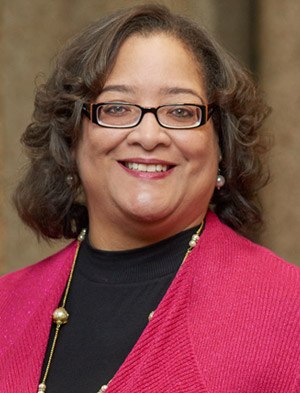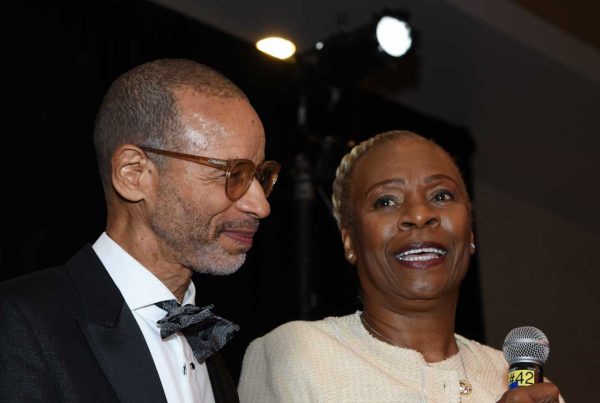2020 has been a prolific year for Prof. Kimberly D. Russaw, whose leadership, speaking, and writing continues to contribute richly to both scholarly audiences and the public square. Her commitment to the academy, the church, and the broader community shine through in these numerous and wide-ranging projects.
Over the past year, Prof. Russaw has been active in a number of scholarly communities, contributing her distinctive voice and leadership. Back in October, she was invited to participate in an online event hosted by the scholarly community The BRANE Collective (Bible and Religions in the Ancient Near East), who gathered around the question, “Can Feminism be Institutionalized?” Her short paper response, “Lineages, Hierarchies, and Feminist Possibilities,” interrogated the idea of forming feminist lineages in the academy.
Also this past October, Prof. Russaw was invited to be the plenary speaker for the Association for Theological Schools’ event, “Navigating Seasons of Change: A Women in Leadership Fall Gathering,” where she spoke about key learnings and best practices regarding the mentorship of young scholars learned from her time as the coordinator of the Doctoral Fellow Mentor Program of the Forum for Theological Education (FTE), a role she has held since 2016. About her experiences with mentorship and the FTE, Prof. Russaw was recently interviewed on the Wabash Center’s “Dialogue on Teaching” podcast. Listen here.
More recently, Prof. Russaw has been working as the co-editor (with Dr. Joseph Marchal of Ball State University) of a 2021 special issue of the journal Biblical Theology Bulletin, which will focus on the politics of respectability and biblical interpretation. Prof. Russaw explained, “Coined by Evelyn Brooks Higginbotham, the term ‘politics of respectability’ originally referred to Black churchwomen’s efforts to reform individual Black women’s public behavior for white spectators’ approval. Respectability politics has widened to become a gatekeeping function to include the policing of sexual propriety, dress, and behavioral decorum for the LGBT/Queer community as well. The volume (which grew out of a previous SBL session, jointly sponsored by the Women in the Biblical World and the LGBTI/Queer Hermeneutics sections), will consider strategies in response to this “behavioral entrance fee” for inclusion, as an opening onto critical, creative, or constructive uses of the context, content, or interpretation of the Hebrew Bible and the New Testament.”
Finally, Prof. Russaw has been asked to join the editorial board of the Journal of Biblical Literature, the flagship journal of the Society of Biblical Literature, beginning in January 2021.
Along with these academic leadership and speaking opportunities, Prof. Russaw is currently at work on several exciting writing projects for a wide range of audiences.
Having just completed the manuscript for her second monograph, Prof. Russaw is anticipating the publication of Revisiting Rahab: Another Look at the Women of Jericho in spring 2021 by the General Board of Higher Education and Ministry of the United Methodist Church under the imprint, Wesley’s Foundery Books. This project began as a collection of essays about the biblical Rahab but soon grew into a book-length work. Throughout this new book, Prof. Russaw deploys various exegetical tools to examine the biblical account of the women who readers encounter in Joshua 2.
Prof. Russaw is also contributing one of three new essays to the 30th anniversary edition of the classic work, Stony the Road We Trod: African American Biblical Interpretation. To be published in mid-2021 by Fortress Press, her essay is entitled, “Undaunted: Reading Miriam for the Sistas They Tried to Erase.”
Lastly, and for a more public audience, Prof. Russaw will be contributing an essay to the collection Vision & Voices 2021. Four years ago, following the election of Donald Trump, she was invited to take part in an effort to bring together scholars from diverse religious traditions to write to our national leaders about the core values that have grounded and guided our nation. For 100 days—from January 20 to April 29, 2017—they sent these letters to our leaders in Washington: 100 letters that were read by a large, appreciative audience. Her letter, “What Do We Tell Our Daughters?” was sent on day twelve. The collection of letters was published in a book: American Values, Religious Voices: 100 Days, 100 Letters. Learn more about the Values & Voices project here.
About the new project, Prof. Russaw explained, “Four years later, as we contend with a pandemic and a deeply divided country, the coordinators of the original project remain convinced that scholars of religion and the texts they teach can speak with wisdom and urgency to this precarious, precious moment in our nation’s history. Values & Voices 2021 will send a letter a day to our elected representatives and promote the letters on its website and social media platforms. The main difference is that this time the letters will be addressed to ‘President Biden, Vice President Harris, and the 117th Congress.'”





